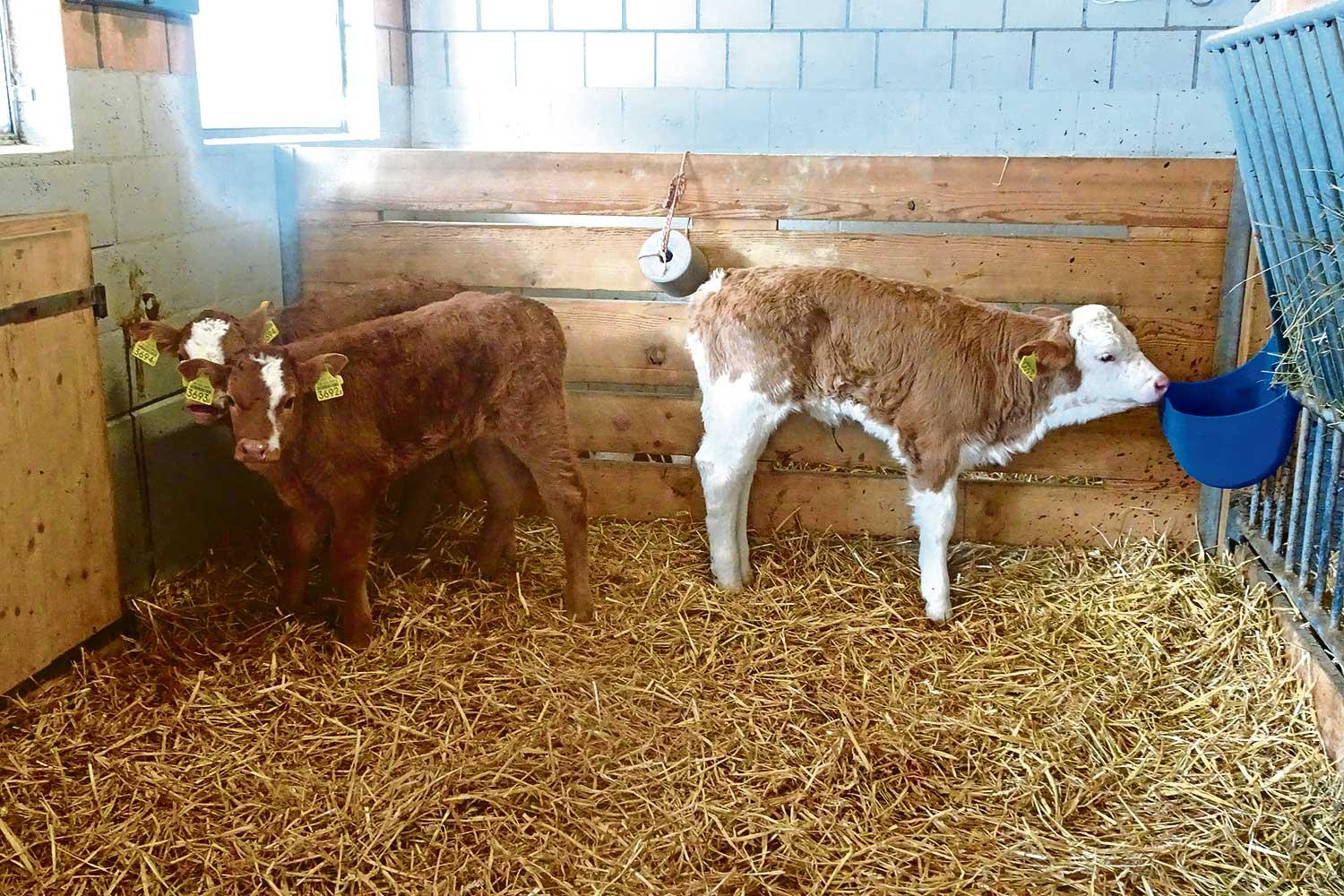Animal welfare in animal husbandry
26.03.2021 Local NewsOn the whole, the animal welfare regulations in the Saanenland are complied with, confirms the cantonal veterinarian Dr. med. vet. Reto Wyss. "There are black sheep everywhere, no more and no less in the Saanenland than in other comparable regions.” Without claiming to be complete, the most obvious animal welfare guidelines are explained below.
Unannounced inspections
Today, farms are subject to a wide variety of controls. In addition to, for example, controls of milk hygiene, water protection or ecological compensation areas, specific controls of animal welfare regulations are also carried out. About 40 per cent of the inspections in the area of animal husbandry take place unannounced. If any major offences related to animal welfare are found during an inspection, a report is made to the Veterinary Office (AVET).
According to Dr Felix Neff, official veterinary surgeon for Obersimmental-Saanenland, the Swiss Ordinance on Animal Welfare, which was completely revised in 2008 and last amended in July 2020, serves as the basis for the inspection of animal husbandry on farms. All the regulations set out in this ordinance are based on scientific findings on animal welfare.
To avoid conflicts between a veterinarian and his clients, controls can be carried out by a specialist from another region or the AVET headquarters in Bern. In return, the local official veterinary surgeon inspects farmers in other regions.
Kindergarten for calves
Certainly the most noticeable change that has been in effect since the introduction of the new Animal Welfare Ordinance in 2008 is the keeping and rearing of calves. Since cattle are herd animals, calves up to the age of four months must be kept in groups and may not be tethered. However, tethering for short periods, e.g. for watering or treatment, is permitted. Calves kept in individual hutches with permanent access to an outdoor enclosure are exempt from group housing. Calves kept individually must be guaranteed visual contact with conspecifics. Today, it is a matter of course that hay and water are freely available all day.
Outdoors in (almost) any weather
Stables with tethering are still widespread in western Oberland. Therefore cattle must have time outdoors. Farmers must keep a record of when they allow their cattle the legal minimum of 30 days in the winter and 60 days in the vegetation period. The animals are not allowed to be outside for more than two weeks, but there is no regulation on how long and at what time of day they have to be outside. In the local area, most animals are out on pasture during the growing season anyway.
Animals that enjoy more frequent outdoor exercise have an owner who has joined the "Raus" (Get out) programme and is committed to providing outdoor exercise 13 times per month. They may also be cows in a free-range barn that enjoy particularly animal-friendly husbandry. These types of husbandry offer the animals more than the legal minimum and are compensated by additional direct payments.
Humans and animals do not feel the same
It is just as important that farm animals receive the necessary feeding and care as the correct dimensions of resting and tethering places. Well-groomed and clean animals are the pride of every livestock farmer, but a distinction must be made between animals that get their legs dirty in wet weather and old, dried-on rolls on the hindquarters of cattle.
The responsible authorities often receive unjustified reports when, for example, cattle or sheep are outside day and night. An animal cannot be compared to a human being and feels comfortable even if the nights get colder in autumn. Hoarfrost or a thin layer of snow do not bother a sheepskin, much more important is weather protection in continuous rain.
It is important to remember that animal welfare legislation defines the minimum requirements and not the ideal animal housing. "We often receive reports of alleged animal welfare violations and are then met with incomprehension by those who report them when we tell them that this is what the legislation says," explains cantonal veterinarian Reto Wyss. Sometimes it would be good to talk to the animal owners first before making a report. "But if there is a suspicion that the regulations are being disregarded or even that animals are being cruelly treated, the animals are better off being reported to the AVET or the police than to the press.”
Based on AvS/Vreni Müllener






